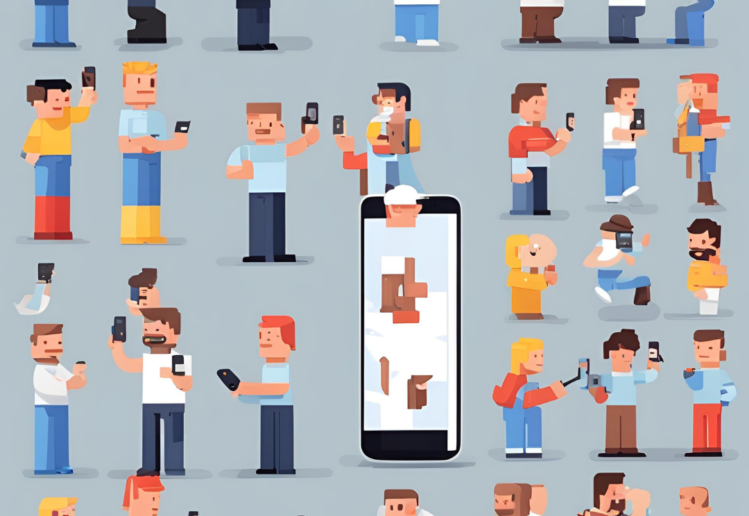In the current landscape of smartphone ownership, many consumers have developed brand loyalty towards their preferred phone models. This loyalty is particularly evident in users who consistently upgrade within the same brand, such as Apple iPhone, Samsung Galaxy, and Google Pixel enthusiasts. Despite this clear trend, many carriers fail to capitalize on the wealth of data they possess to effectively market upgrades to their customers. I want to explore how carriers can re-invent their marketing strategies by utilizing customer data to create personalized and timely upgrade offers.
The Current State of Smartphone Ownership
The smartphone market has matured to a point where technological leaps between generations are incremental rather than revolutionary. As a result, many users have become comfortable with their existing devices and prefer to stick with their chosen brands. For example, a customer who has owned a Nexus, Pixel 2 XL, Pixel 6, and Pixel 7 is likely to upgrade to a Pixel 8 or Pixel 8 Pro when the time comes. This predictable behavior presents a significant opportunity for carriers.
The Data Carriers Have
Mobile carriers collect extensive data on their customers, including:
- Purchase history: Which phone models a customer has bought and when.
- Usage patterns: Data usage and call frequency.
- Contract details: When a customer’s contract or lease ends.
- Customer interactions: Customer service inquiries and feedback.
The Missed Opportunity
Currently, many carriers send out generic marketing campaigns that fail to leverage this detailed customer data. This results in missed opportunities to encourage timely upgrades and strengthen brand loyalty. Instead of a one-size-fits-all approach, carriers could use data-driven strategies to tailor their marketing efforts to individual customer preferences and behaviors.
Personalized Marketing Strategies
- Predictive Analytics: Using historical data, carriers can predict when a customer is likely to upgrade their device. For instance, if a customer typically upgrades every two years, a carrier can start sending personalized offers a few months before the two-year mark.
- Targeted Promotions: Carriers can create exclusive deals for loyal customers. For example, offering a significant discount on the latest Galaxy or Pixel model to customers who have consistently purchased Samsung or Google phones.
- Contract-Based Offers: When a customer’s contract is nearing its end, carriers can send personalized upgrade offers that include benefits such as discounted rates, trade-in bonuses, or additional data packages.
- Customer Segmentation: Segment customers based on their brand loyalty and usage patterns. This allows for more precise targeting, ensuring that Pixel users receive promotions for the latest Pixel devices, while iPhone users get offers for the newest iPhone.
- Loyalty Programs: Develop loyalty programs that reward customers for sticking with a brand. This could include early access to new models, special financing options, or exclusive events.
Benefits of Personalized Marketing
- Increased Customer Retention: Personalized marketing fosters a stronger relationship between the carrier and the customer, reducing the likelihood of churn.
- Higher Conversion Rates: Tailored offers are more appealing to customers, leading to higher conversion rates and increased sales.
- Enhanced Customer Experience: Providing relevant and timely offers enhances the overall customer experience, leading to greater satisfaction and loyalty.
Example: My Situation with Koodo
To illustrate the potential of personalized marketing, let’s consider my own situation with Koodo. I am currently using the Google Pixel 7 with my Tab expected to be paid off on November 22, 2024. The Google Pixel 9 is anticipated to release in October. I’m very interested in upgrading and would love a personalized promotion from Koodo that encourages me to upgrade between the release of the Pixel 9 and the end of my tab period. Will I get one? I highly doubt it. Despite my clear loyalty to the Google Pixel line, Koodo has not reached out with targeted offers in the past, even when my contract was about to expire.
This missed opportunity highlights the need for carriers to re-think their marketing strategies. By utilizing the data they already have, Koodo could easily identify me as a prime candidate for an upgrade and offer me a compelling deal on the Pixel 9. This not only benefits me as a customer by providing value and convenience but also benefits Koodo by ensuring my continued loyalty and business.
Conclusion
By leveraging the data they already collect, mobile carriers can transform their marketing strategies to better align with customer preferences and behaviors. Personalized and timely promotions not only drive sales but also enhance customer loyalty and satisfaction. As the smartphone market continues to evolve, carriers that adopt data-driven marketing approaches will be better positioned to succeed in a competitive landscape.
Re-inventing cell phone marketing isn’t just about selling the latest model—it’s about understanding and anticipating the needs of your customers, and delivering value that keeps them coming back.
